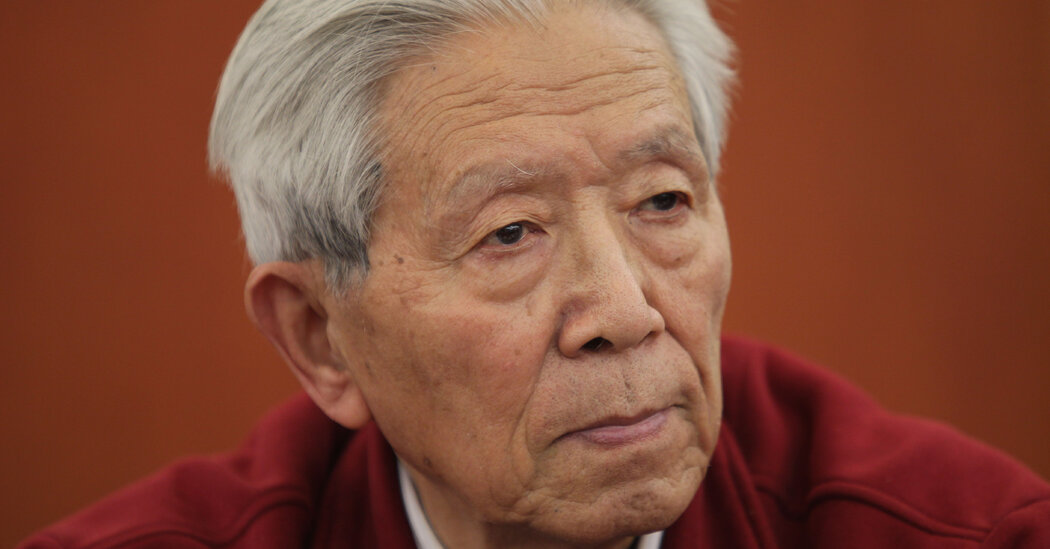But his idealism didn’t last long. In 1966, Mao unleashed the Cultural Revolution, the decade-long period of chaos that upended Chinese society. Groups of militant youths known as Red Guards roved the country, determined to root out “class enemies.” Dr. Jiang, whose father had been a banker and whose cousin was an official in the rival Nationalist party in Taiwan, was an easy target.
Branded a counterrevolutionary, he was imprisoned, beaten and later sent to a prison farm for five years in the remote deserts of Qinghai Province in western China, away from his wife and children. After he was politically rehabilitated in the early 1970s, he returned to No. 301 hospital, where he eventually worked his way up to chief of surgery.
He retired in the early 2000s, but he continued to treat patients and mentor younger doctors. In 2004, he was honored with the Ramon Magsaysay Award for Public Service in recognition of his “brave stand for truth in China, spurring lifesaving measures to confront and contain the deadly threat of SARS.”
In addition to Ms. Jiang, his daughter, he is survived by his wife, Hua Zhongwei, and a son, Jiang Qing.
Dr. Jiang never backed down on the subject of Tiananmen Square. In 2019, before the 30th anniversary of the crackdown, he wrote a letter to Xi Jinping, China’s leader, again demanding justice for the “crime” of 1989. Soon after, Dr. Jiang, at 87, was again under house arrest.
Like others who challenged Communist Party policy, he was largely erased from the official record, and he was sometimes painted as a wrongdoer for having spoken out.
A multiple-choice question posed by a test-prep school in 2017 asked about his decision to come forward about SARS. The “correct” answer was B: Doing so was wrong because it harmed the interests of the nation, the society and the community, and he should be subject to legal punishment.



